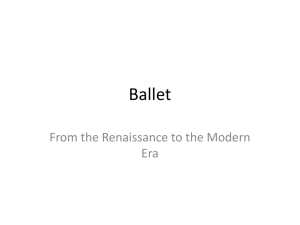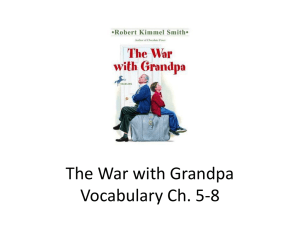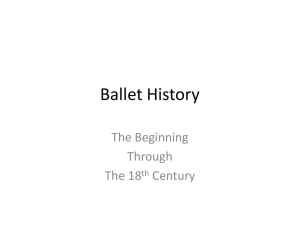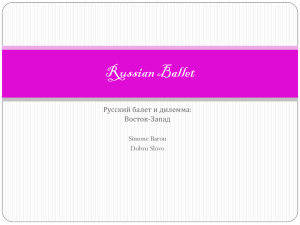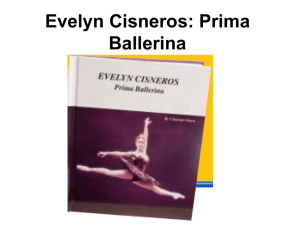Mexican Ballet Folklorico Research Project Proposal
advertisement
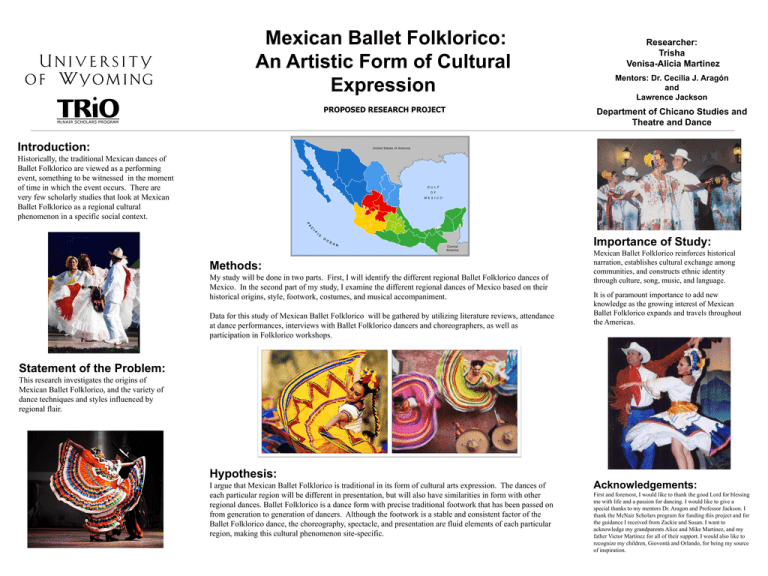
Mexican Ballet Folklorico: An Artistic Form of Cultural Expression PROPOSED RESEARCH PROJECT Researcher: Trisha Venisa-Alicia Martinez Mentors: Dr. Cecilia J. Aragón and Lawrence Jackson Department of Chicano Studies and Theatre and Dance Introduction: Historically, the traditional Mexican dances of Ballet Folklorico are viewed as a performing event, something to be witnessed in the moment of time in which the event occurs. There are very few scholarly studies that look at Mexican Ballet Folklorico as a regional cultural phenomenon in a specific social context. Importance of Study: Methods: My study will be done in two parts. First, I will identify the different regional Ballet Folklorico dances of Mexico. In the second part of my study, I examine the different regional dances of Mexico based on their historical origins, style, footwork, costumes, and musical accompaniment. Data for this study of Mexican Ballet Folklorico will be gathered by utilizing literature reviews, attendance at dance performances, interviews with Ballet Folklorico dancers and choreographers, as well as participation in Folklorico workshops. Mexican Ballet Folklorico reinforces historical narration, establishes cultural exchange among communities, and constructs ethnic identity through culture, song, music, and language. It is of paramount importance to add new knowledge as the growing interest of Mexican Ballet Folklorico expands and travels throughout the Americas. Statement of the Problem: This research investigates the origins of Mexican Ballet Folklorico, and the variety of dance techniques and styles influenced by regional flair. Hypothesis: I argue that Mexican Ballet Folklorico is traditional in its form of cultural arts expression. The dances of each particular region will be different in presentation, but will also have similarities in form with other regional dances. Ballet Folklorico is a dance form with precise traditional footwork that has been passed on from generation to generation of dancers. Although the footwork is a stable and consistent factor of the Ballet Folklorico dance, the choreography, spectacle, and presentation are fluid elements of each particular region, making this cultural phenomenon site-specific. Acknowledgements: First and foremost, I would like to thank the good Lord for blessing me with life and a passion for dancing. I would like to give a special thanks to my mentors Dr. Aragon and Professor Jackson. I thank the McNair Scholars program for funding this project and for the guidance I received from Zackie and Susan. I want to acknowledge my grandparents Alice and Mike Martinez, and my father Victor Martinez for all of their support. I would also like to recognize my children, Giovontá and Orlando, for being my source of inspiration.
